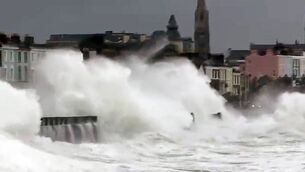McGuinness 'will not identify IRA members'
Sinn Fein’s Martin McGuinness will not identify former comrades in the IRA when he takes the witness stand in the Bloody Sunday Inquiry.
The Mid Ulster MP told the inquiry into the 1972 killings he was ‘‘the adjutant (second in command) of the Derry Command of the IRA’’ on the day of the shootings of 13 Catholics by Paratroopers during a civil rights march.













